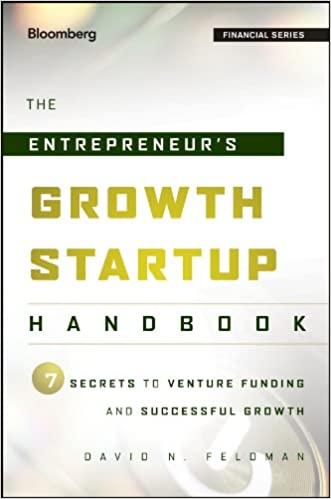Question
I have answerred as good as I can, could you correct / finish it? Trying to understand this question. Thanks in advance! An acquirer considers
I have answerred as good as I can, could you correct / finish it? Trying to understand this question. Thanks in advance! An acquirer considers making a public offer to acquire shares of a target. The target has N shares outstanding, where N is an even natural number. Conditional on observing the acquirer's offer, the target's shareholders decide whether to accept it or not. The value of the target is Vsucces if the acquirer obtains at least 50% of the shares and Vfailure < Vsucces if otherwise.
a. Suppose that the target's shareholders are nonpivotal, that is, each of them takes the aggregate decisions of all shareholders to accept or reject the acquirer's offer as given. Show that there is no Nash equilibrium in which the target acquires at least 50% of the shares for a per-share price of p --- My answer --- Payoff to shareholders that accept p < Vsucces/N If takeover succeeds Vfailure/N If takeover fails Payoff to shareholders that decline Vsucces/N If takeover succeeds Vfailure/N If takeover fails Based on the above outcome, for shareholders to accept the value has to be at least Vsucces/N.
b. For letter b) and c) below, assume that each of the target's shareholders holds one indivisible share. On the acquirer's behalf, design an offer such that, under a Nash equilibrium, the acquirer obtains 50% of the synergies Vsucces - Vfailure. (Hint: it could help to draw the two-shareholder normal form of the game) --- my answer ---
No clue.
c. On the acquirer's behalf design an offer such that, under a Nash equilibrium, the acquirer obtains 100% of the synergies Vsucces - Vfailure. (Hint: it could help to condition the payoffs of the two-shareholder normal form of the game on the offer designed) --- my answer --- The acquirer can capture 100% of the synergies with a LBO (leveraged buyout). If he obtains a conditional loan for an amount such that Vsucces = Vfailure and pledges that debt to the company right after acquisition. He then makes a conditional offer to shareholders, where he offers them Vfailure/N = Vsucces /N per share.
For instance, price of target is 10 per share at t=0, with acquisition (new mgmt) price per share is 20. There are 10 shares, hence value at t=0 (Vfailure) = 100, Vsucces = 200. The acquirer makes a conditional loan: borrow 100 if tender offer succeeds. The acquirer makes a conditional tender offer in which he pays Vfailure/N In case of succes, he pledges the loan to the company so that value of equity = V D = 100. Therefore, share price Vsucces still equals 100/10 = 10.
Because share price for Vfailure and Vsucces are identical, there is an quilibrium in which the acquirer obtains 100% of the synergies. d. Given your answers in a), b), and c), what allows the acquirer to appropriate 100% of synergies in c) that is not in either a) or b)?
--- my answer --- The fact that he can make use of a leveraged buyout (LBO) to capture the synergy gains.
Step by Step Solution
There are 3 Steps involved in it
Step: 1

Get Instant Access to Expert-Tailored Solutions
See step-by-step solutions with expert insights and AI powered tools for academic success
Step: 2

Step: 3

Ace Your Homework with AI
Get the answers you need in no time with our AI-driven, step-by-step assistance
Get Started


